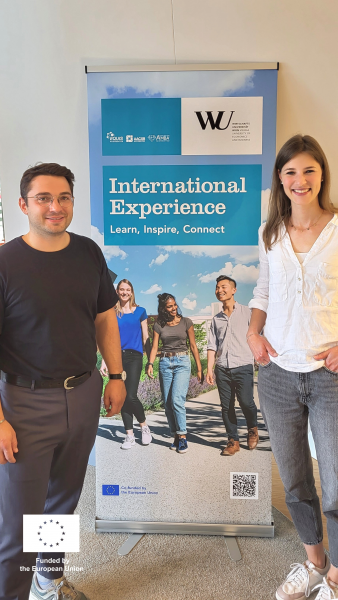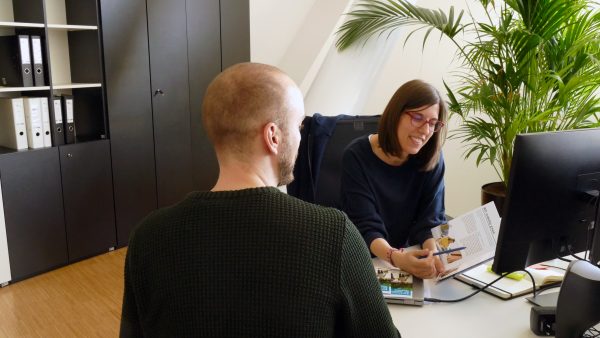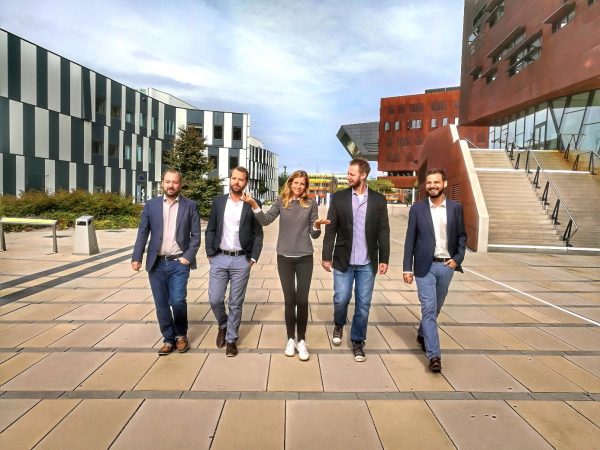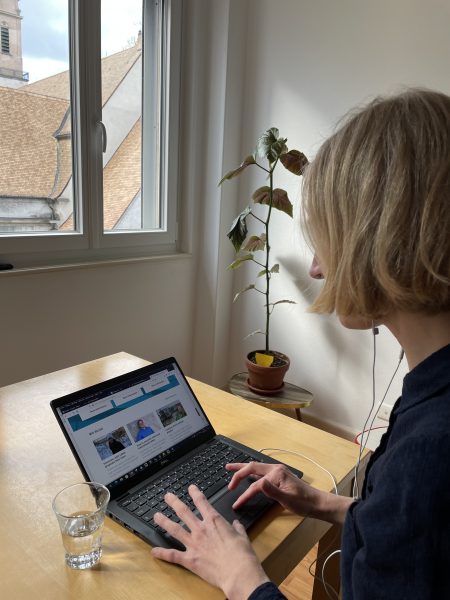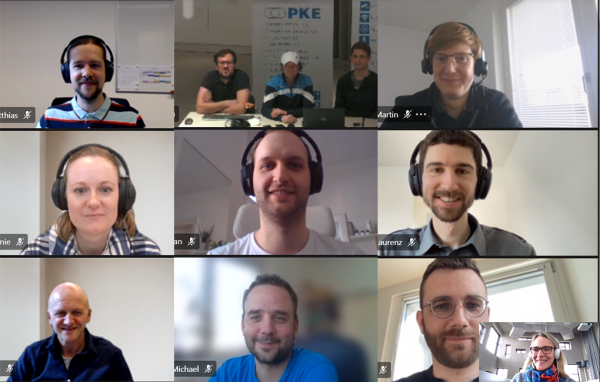The HUMLOG Challenge – WU Team scores a remarkable second place
The HUMLOG Challenge is a joint program of the Global Business School Network (GBSN) and the Humanitarian Logistic and Supply Chain Research Institute (HUMLOG Institute) of Hanken School of Economics. Over a period of one month, teams consisting of 3 to 5 people work on their solutions. This year’s first place went to students from the Universidad de los Andes for their project of a better water supply chain in La Guajira (Colombia).
Among the worldwide participating teams, you could also find the WU team: The five WU students Tobias Damberger, Rucha Deshpande, Markus Simon Domevscek, Vanessa Klackl and Michael Pesendorfer took part in the student competition and performed outstandingly. With their supply chain solution, they achieved second place in this virtual and international competition. In an interview with Robin Heldt from the International Office, Vanessa Klackl talks about how she and the WU team experienced the HUMLOG Challenge.
Robin Heldt: How did you find out about the HUMLOG Challenge? How did you get involved?
Vanessa Klackl: We were introduced to the GBSN HUMLOG Challenge through our course “Sustainable and Humanitarian Supply Chains” which is an elective in our Master Supply Chain Management. The whole class was taking part.
Robin Heldt: Could you briefly describe your project and the supply chain problem you identified?
Vanessa Klackl: The goal was to find innovative solutions to current logistical challenges in our community caused by the COVID-19 pandemic. We wanted to improve the testing procedure and put a focus on mobile testing by the Red Cross in Vienna, which, considering the recent surge in new cases and the upcoming flu season, is under a lot of pressure and needs to be as efficient as possible.
Robin Heldt: What were your main findings and your solution to the problem?
Vanessa Klackl: We concluded that the testing capacity of the current vehicle fleet could be increased by reducing the time spent putting on and taking off protective equipment, either by switching to or by adding “gargle tests” along with the current testing method – similar to how the tests with bikes are currently conducted in Vienna. Second, we suggested the introduction of a single, multifunctional website as well as an extension of the “Stopp Corona” app, which – using best practices from other countries – not only allows web-triage, but also further convenient steps to find the optimal testing option and book appointments online. Third, we wanted to reduce the increasing pressure on testing resources during flu season by using social media campaigns to reinforce the importance of staying at home to avoid getting sick.
Robin Heldt: What was it like to participate in an international and digital competition? Did you feel well prepared through your studies at WU?
Vanessa Klackl: It was an exciting new experience, and we learned a lot during this process. Our studies at WU helped us in various ways, for example, we used the VRP (Vehicle Routing Problem) geoprocessing tool in ArcGIS to analyse the mobile testing situation in Vienna, after having used this program in two previous courses in our Master. Knowing of the importance and complexity of logistical operations, we also wanted to make sure we only suggest solutions that we are confident are feasible.
Robin Heldt: Could you tell us about a personal highlight moment? What inspired you the most?
Vanessa Klackl: Making it into the top 5 and being able to present our solution in front of industry professionals was a highlight for all of us. Furthermore, finding out about the new “Symptomchecker” website, which was introduced after we submitted this project and is similar to our idea of an online tool for web-triage and making appointments was a great validation that our solutions are in fact useful and feasible.
Robin Heldt: Is there something that you would like the WU community to know about this experience?
Vanessa Klackl: For us as supply chain students, this was a great learning opportunity. It inspired us to keep working on innovative and sustainable supply chain solutions that address the current challenges in our community. We can encourage everyone with an interest in logistics to take part next year!














